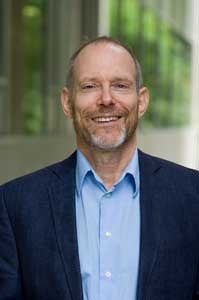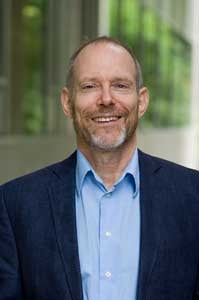 KINGSTON, R.I. – March 9, 2015 – At the next family gathering, you might want to turn to a grandparent for advice about how to put a spark back in your marriage – or deal with meddlesome in-laws.
KINGSTON, R.I. – March 9, 2015 – At the next family gathering, you might want to turn to a grandparent for advice about how to put a spark back in your marriage – or deal with meddlesome in-laws.
Karl A. Pillemer, one of the country’s leading gerontologists, says older Americans possess wisdom they’ve acquired over a lifetime of experience, on topics ranging from love and marriage to careers and children.
He’ll bring his expertise to the University of Rhode Island during the annual Thewlis Lecture on Gerontology and Geriatrics on March 25 at 7 p.m. in Edwards Hall, 64 Upper College Road, on the Kingston campus. The talk, “Advice from the Oldest (and Wisest) Americans on Love, Relationships and Marriage” is based on his latest book, 30 Lessons for Loving. A reception, also in Edwards Hall, will start at 6 p.m.
Years ago, Pillemer interviewed more than 1,000 Americans over the age of 65 who shared what they wished they had known when they were starting out in life. The result was another book, 30 Lessons for Living: Tried and True Advice from the Wisest Americans. Pillemer will join a discussion on this book from 2 to 4 p.m., also on March 25, in the Alumni Center, 73 Upper College Road.
The lecture and events are free and open to the public.
URI’s Marketing and Communications Office recently talked to Pillemer, the Hazel E. Reed professor of human development at Cornell University, about his research on older Americans, including their thoughts on sex, romance, happiness, the secret to a long-lasting marriage and even who to side with in disputes with in-laws.
Thank you for coming to URI. Can we expect sparks to fly during your talk?
Well, I’ll be talking about how people keep the sparks flying in relationships lasting a half-century or more. Whether they fly in the talk – that depends on the audience!
What is your Legacy Project and why did you launch it?
A number or years ago, I realized I had focused much of my research on the downside of aging: nursing homes, Alzheimer’s disease, elder abuse, chronic pain and other problems. Then I discovered some fascinating research showing that older people are actually happier than younger people, despite such problems. It hit me that perhaps older people know things that younger people don’t about living a happy, healthy and fulfilling life. To my surprise I found that no one had done a study to answer the question: What practical advice do older people have for younger generations? That set me off on a quest to learn the life wisdom of the oldest Americans – before their generation passes on.
What was the number one tip from long-married couples for choosing a mate?
I’m going to cheat, because it’s really two different insights, but they go together, so I think it’s fair. First, there’s one thing nearly all the elders really wanted young people to know: Marriage for a lifetime is hard. Very few people enter into marriage with this thought foremost on their mind. But according to the elders, to stay married for life requires resilience, spirit and discipline. It also requires an acceptance of predictable stressors and unexpected difficulties, without giving up. But the good news is: it’s worth it. I saw firsthand from hundreds of elders that a long marriage provides some of the most splendid emotional experiences life offers. Young people must accept this interplay of smooth and rough patches, or they won’t make it through married life
What did older Americans tell you about keeping sex alive in their marriage?
The findings on sexuality in long-married couples was very positive. The elders wanted young people to know that the idea of the “sexless older years” is a myth. Indeed, a number of elders married for a half-century or more described intimacy as better in some ways than it was when they were younger and in the midst of jobs, child-rearing, and other middle-aged stressors. For them, intimacy does broaden to include the pleasure of touch, holding one another and other forms of closeness.
What did older Americans say about the key to a long and healthy marriage? Did they mention the adage “never go to bed angry”?
Almost everyone used that phrase, so I wondered if it was an empty cliché. Why should we so strenuously avoid going to bed angry? I learned that there is a deep meaning behind it: that we should never hold grudges in marriage. Instead, according to the elders, there must be a spirit of forgiveness and a willingness to, as one 90-year old told me, “Clear everything out at the end of the day.” Nothing puts out the spark in a marriage as much as long, simmering anger. This is the kind of insight that comes from being at the “finish line” of marriage, looking back.
You mention that in-laws can have a big impact on a marriage. What do elders say about that? Who comes first – a spouse or in-laws?
The elders were unequivocal about this one: if there is conflict between your family and your spouse, side with your spouse. They encourage everyone to do everything possible to get along with in-laws, but when it comes down to a choice – my spouse or my family of origin – you need to side with your spouse. This is the voice of experience talking. Many elders had in-law difficulties, and this rule got them through it.
It’s important to respect older people, but why does that value system seem to be diminishing in this country?
We are in the midst of a dangerous experiment in our society: creating a situation for the first time in history where young people have no meaningful ties or relationships to older people (except for intermittent interactions with grandparents). Our society is more age-segregated than ever, and we are losing intergenerational ties. There are many reasons, but a pervasive ageism, reinforced by the media and cultural stereotypes, is what we most urgently need to work on.
Where can we find your books?
They are in most bookstores and at all online booksellers. People can get more information on my website:. They can find links to videos of the elders sharing their lessons, our blog and even a place to share their own lessons for loving.
The annual URI lecture is named for Malford Thewlis, one of the founders of the American Geriatrics Society in 1942. A former resident of Wakefield, Thewlis wrote The Care of the Aged: Geriatrics, a 1919 textbook on geriatric medicine.
The Rhode Island Geriatric Education Center, the URI Program in Gerontology, the URI Office of the Provost, the URI College of Human Science and Services and the Health Resources and Services Administration at the U.S. Department of Health and Human Services are sponsoring the talk.
Pillemer’s talk is part of URI’s Aging and Health Week, which also includes these events:
* On Wednesday, March 25, at 11:30 a.m., students are invited to the Memorial Union to meet older adults visiting from South Bay Manor and the Osher Lifelong Learning Institute. Activities include games and interactive exhibits related to aging and health. The event gives older adults and students a chance to learn about each other.
* On Monday, March 30, at 3 p.m., the film “Cyber Seniors” will be shown in the Memorial Union, Atrium 1. The film chronicles a group of seniors as they discover the Internet through the guidance of young mentors and shows what can happen when the two generations come together. Students and adults from the community are invited to attend this free showing.
For more information, visit the Geriatric Education Center’s website or call Judith Sweeney at 401-874-5311 for information about parking and directions.
Watch a short video of Pillemer’s “30 Lessons for Loving.”
Photo above: Karl A. Pillemer, a renowned gerontologist who will speak at the University of Rhode Island March 25 in Edwards Auditorium. Photo courtesy of Pillemer.

